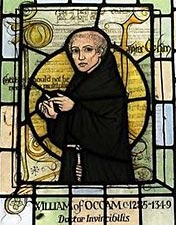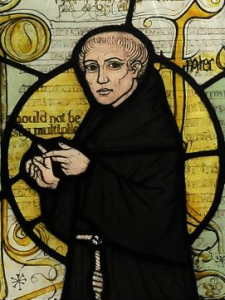
William of Ockham Dialogus: Latin text and English translation. William of Ockham (1940) Opera Politica, Sikes JG et al (eds) Manchester University Press, Manchester Tierney B (1997) The idea of natural rights. Oakley F (1961) Medieval theories of natural law: William of Ockham and the significance of the voluntarist tradition. In: Spade PV (ed) The Cambridge companion to Ockham. McGrade AS (1999) Natural law and moral omnipotence. In: Tierney B, Linehan P (eds) Authority and Power. McGrade AS (1980) Ockham and the birth of individual rights. All students of medieval history and the history of political thought should be grateful.McGrade AS (1974) The political though of William of Ockham. The introductions of McGrade are clear and concise, the translations of Kilcullen fluent and accurate, and the footnotes provide material that will be helpful to a stdent without being too intrusive.a fine achievement. One would hope that more of Ockham's theological and philosophical treatises would undergo similarly outstanding editing and translating." Christianity and Literature, "The editor and translator have done their work excellently. The translation is faithful: it reminds one of Jowett on Plato." The Canadian Catholic Review, ".an exemplary addition to the study of late medieval thought. Earlier biographies generally put the date in 1285, but scholars now put it later. 1287 10 April 1347) was an English Franciscan friar, scholastic philosopher, apologist, and Catholic theologian, who is believed to have been born in Ockham. Because of his role in the bitter dispute between the Franciscans and Pope John XXII over evangelical poverty, he was excommunicated in 1328.

For further details of Ockham's life, see Courtenay 1999. 1285 - 1347) Born in England and educated at Oxford, Ockham was the preeminent Franciscan thinker of the mid-fourteenth century. 3 is a prime, 5 is a prime, and 7 is a prime. Unfortunately, due to a lack of translations, the greater part of Ockhams work is inaccessible to all except a few medieval scholars having access to the various Latin editions of Ockhams writings. Simpler explanations are, other things being equal, generally better than more complex ones. The texts themselves represent most periods of Ockham's polemical career. For an account of Ockham's life, including a discussion of how these dates are calculated in Ockham's case, see Wood 1997, Chap. naturally focussed attention on William of Ockham as one of the major figures in the development of medieval thought. There are judiciously designed biographical, bibliographical, and textological sections, and an excellent Introduction for the uninitiated.


When read in conjunction with their earlier Short Discourse on Tyrannical Government, the new selections confirm that William of Ockham was a master of political thought in the western tradition. Recommended for serious scholars of the history of Western political thought." Choice, "The co-editors of this volume should be congratulated for providing much theoretical material to students of politics who do not have easy access to its original medieval Latin medium. The translations are careful and excellent, while still reading very casually. William of Ockham, OFM was an English Franciscan friar, scholastic philosopher, apologist, and Catholic theologian, who is believed to have been born in Ockham, a small village in Surrey. "This translation constitutes an important contribution to the history of Western political thought and is especially valuable as filling one of the many lacunae in the history of medieval political thought.


 0 kommentar(er)
0 kommentar(er)
